Restore, protect, and strengthen your teeth with natural-looking dental crowns.
A dental crown is a custom-made, tooth-shaped cap that is placed over a damaged, decayed, or weakened tooth.
It fully encases the visible portion of the tooth above the gum line, restoring its original shape, size, strength, function and appearance.
A crown is also designed to protect and strengthen the underlying remaining tooth structure.
At Ocean Dental Singapore, we provide dental crowns made from suitable materials tailored to your needs.
Our crowns are designed to match the appearance of your natural teeth, ensuring a seamless and attractive result.


A dental crown is used for a variety of situations, including:
If you’re unsure whether you need a crown or a filling, we’ll guide you during your visit.
Our dentists will explain your options clearly with no pressure to proceed.
Once the need for a crown is determined, the dental crown procedure will be discussed as the next step.
We offer several types of crowns to suit different needs and budgets.
Some crowns are suitable for both front and back teeth, offering versatility and durability depending on the type of material used:
Type | Best For | Pros | Considerations |
Porcelain/ Ceramic | Front teeth | Very natural appearance | Less durable for back teeth |
Zirconia | Front & back teeth | Aesthetic and highly durable for front and back teeth | Slightly higher cost |
Metal / Gold Alloy | Back molars | Extremely strong and long-lasting | Not tooth-coloured |
Porcelain-Fused-to-Metal | Most uses | Good balance of strength and looks | Metal may show at gum line |
Resin | Short-term use | More affordable | Wears down more quickly |
At Ocean Dental Singapore, we use only trusted labs and materials approved by Singapore’s health standards.
The type of crown selected depends on the location and function of the tooth.
The type of material or crown is chosen based on your individual needs, such as strength, aesthetics, and durability.
For example, zirconia crowns are popular because they are strong, aesthetic, and suitable for both front and back teeth.
They are also highly resistant to wear and provide a natural look.
In Singapore, the price of a dental crown ranges from $950 to $1,400+ per tooth.
The cost depends on the material, complexity, and lab fees.
While dental crowns are currently not Medisave-claimable, from mid-2026, you may be able to use Flexi-MediSave to pay for permanent crowns at CHAS dental clinics and public healthcare institutions.
At Ocean Dental Singapore, we believe in price transparency.
You’ll receive a full breakdown before treatment begins.
Flexible payment options are available to suit your needs.
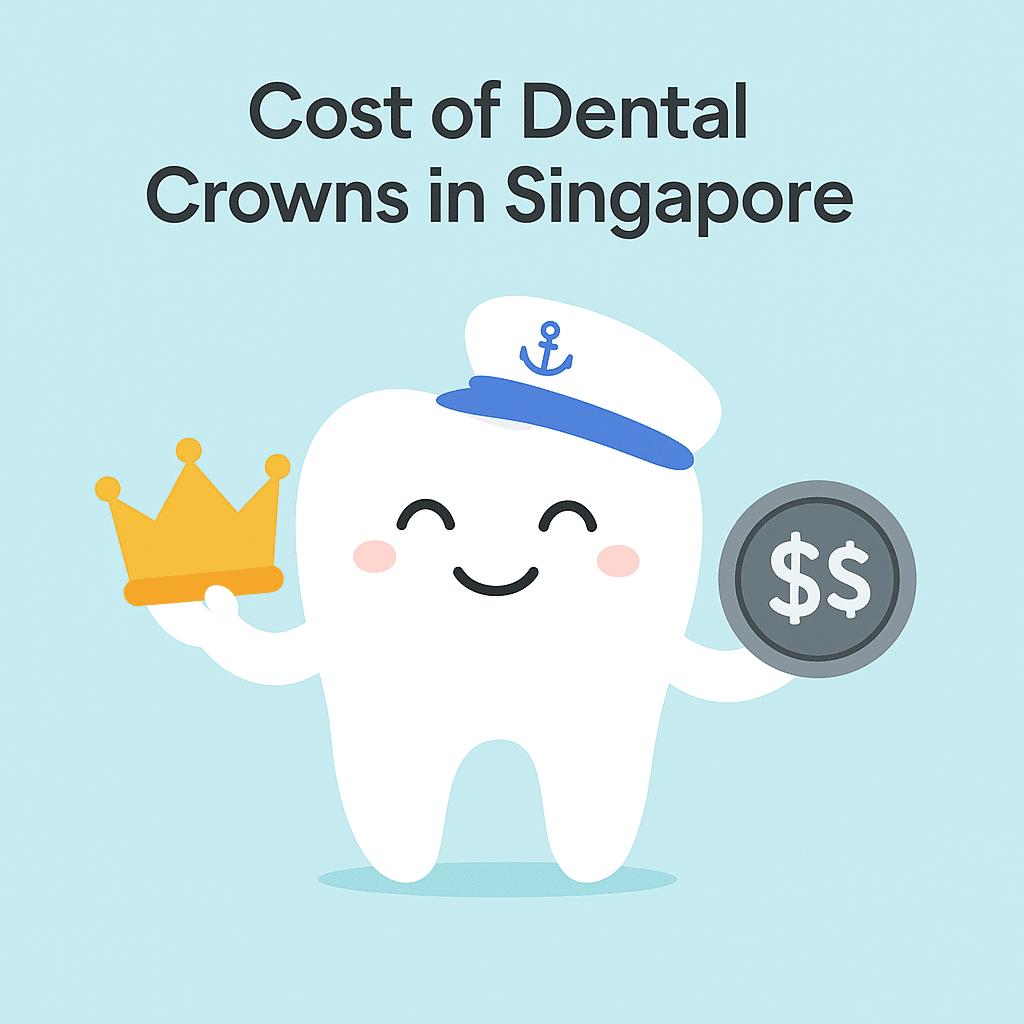
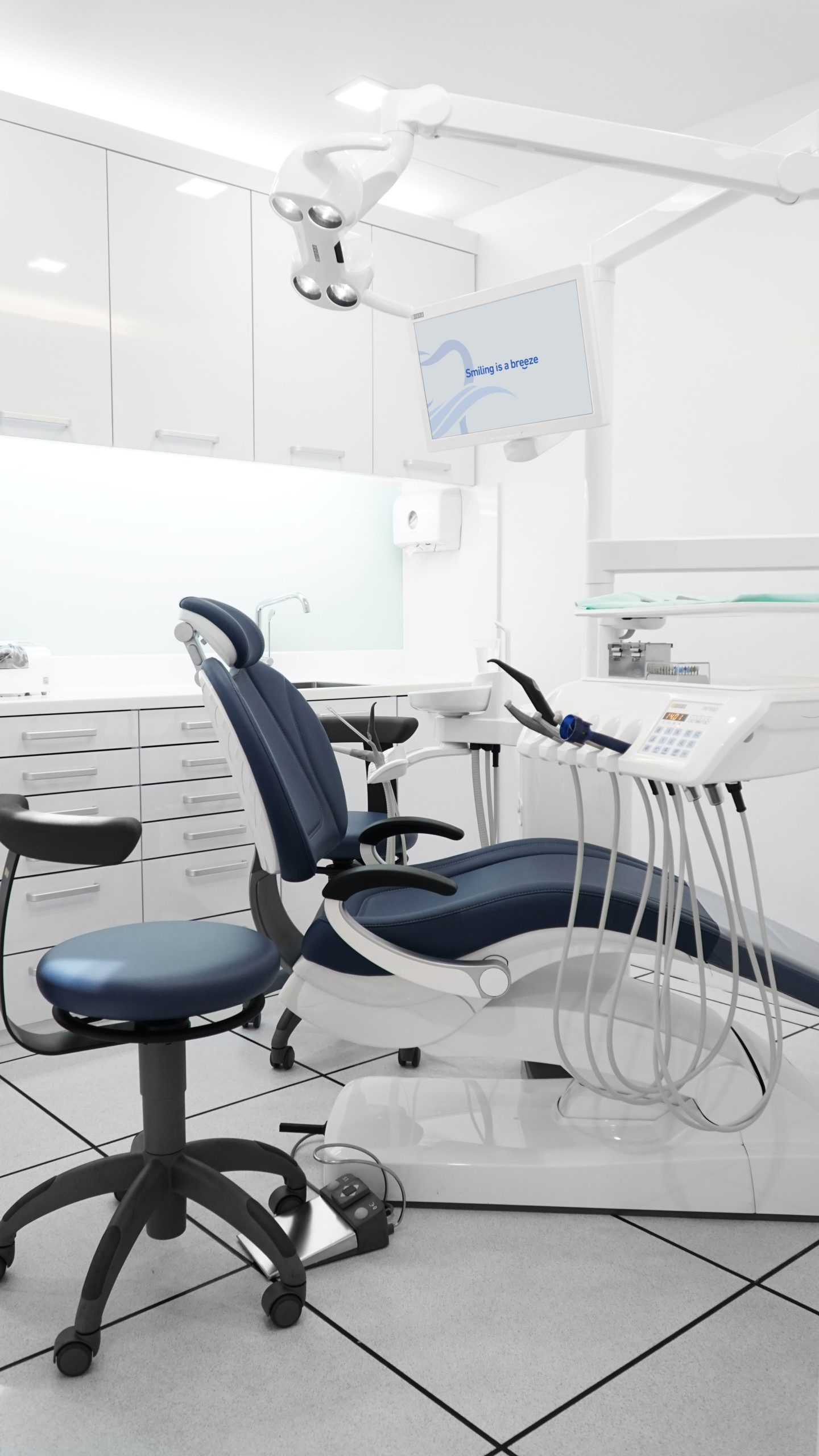
We begin with a clinical exam and digital x-rays.
The dentist assesses the tooth and discusses treatment options with you.
We’ll explain if a crown is recommended and why.
The tooth is gently reshaped to fit the crown.
We take digital or physical impressions for accuracy.
A temporary crown is placed while your final crown is being made.
The custom crown is ready in about 1–2 weeks.
We check the fit, bite, and comfort before securing it.
Final adjustments are made to ensure a natural look and feel.
We use minimally invasive techniques and modern imaging for better patient comfort.
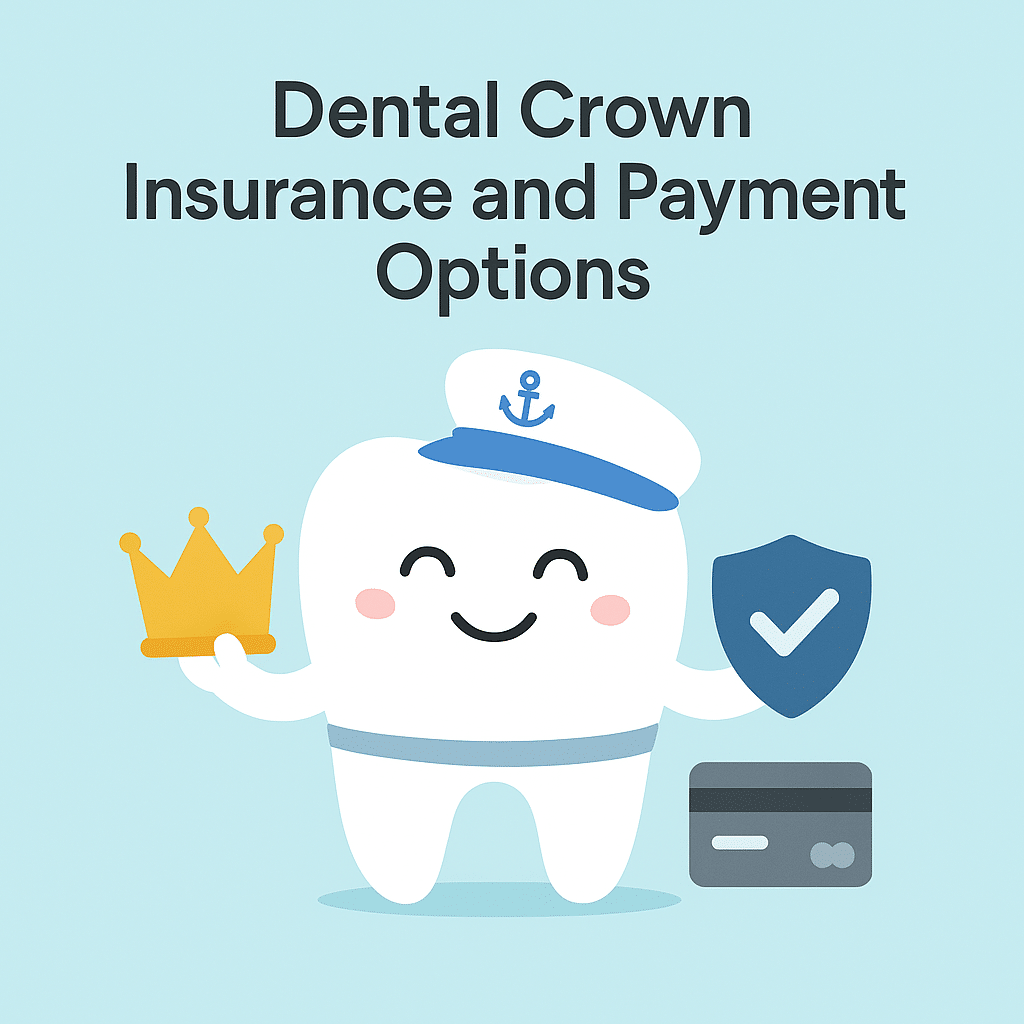
A dental crown is a significant investment in your oral health, and understanding your insurance and payment options can make the process much smoother.
In Singapore, some dental clinics accept insurance plans that may cover part or all of the cost of a dental crown, depending on your policy.
It’s important to check with your dentist and your insurance provider before the procedure to clarify what is included.
Many clinics also offer flexible payment plans to help manage the cost of crowns, especially if you require more than one.
Some may provide package deals or discounts for multiple crowns, making it more affordable to restore several teeth at once.
Your dentist will be able to explain the available payment options and help you choose a solution that fits your budget and needs.
Always ask for a detailed breakdown of the cost before starting the procedure, so you know exactly what to expect.
Dental crowns typically last 10 to 15 years or more.
A permanent crown is designed to last many years with proper care.
Their lifespan depends on your oral hygiene and daily habits.
To make your crown last longer:
With a dental crown, you should maintain good oral hygiene and avoid habits that could damage the restoration.
We provide aftercare tips and reminders to help protect your crown long-term.
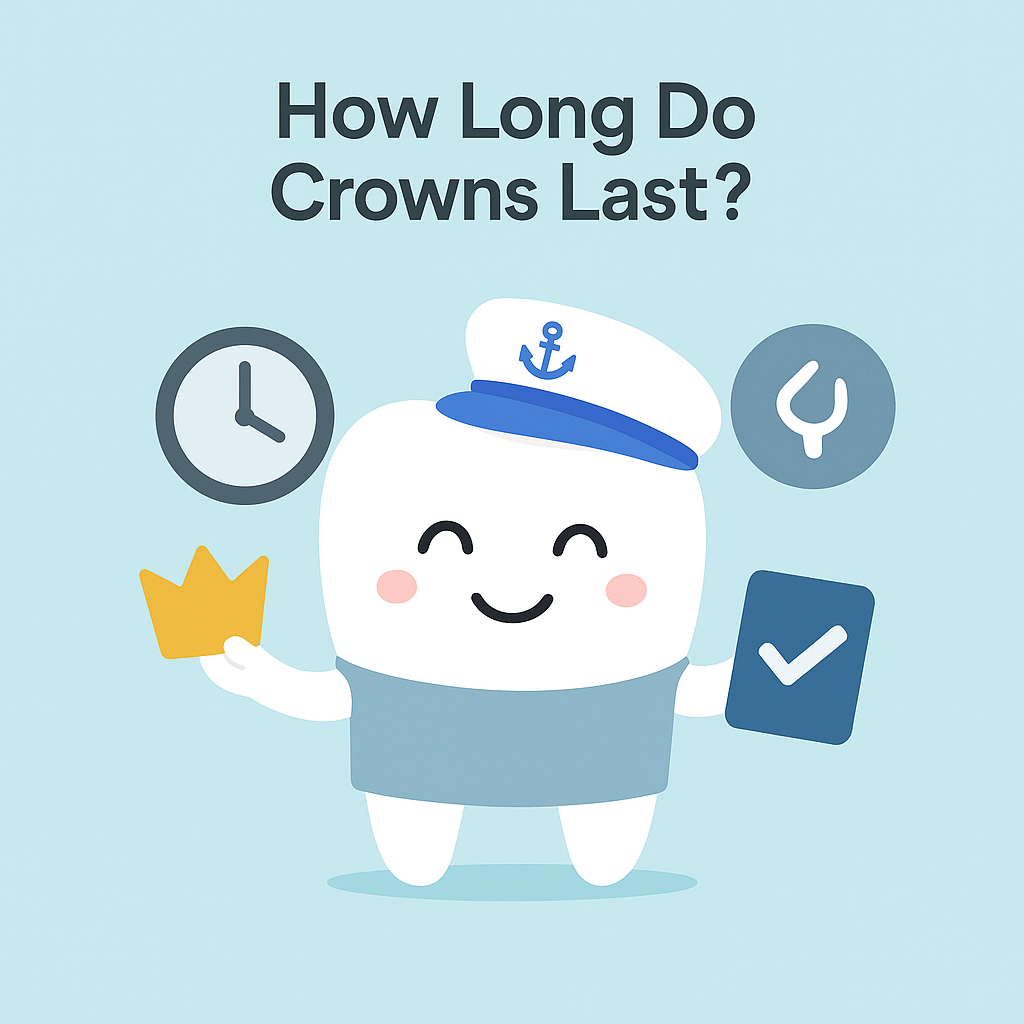
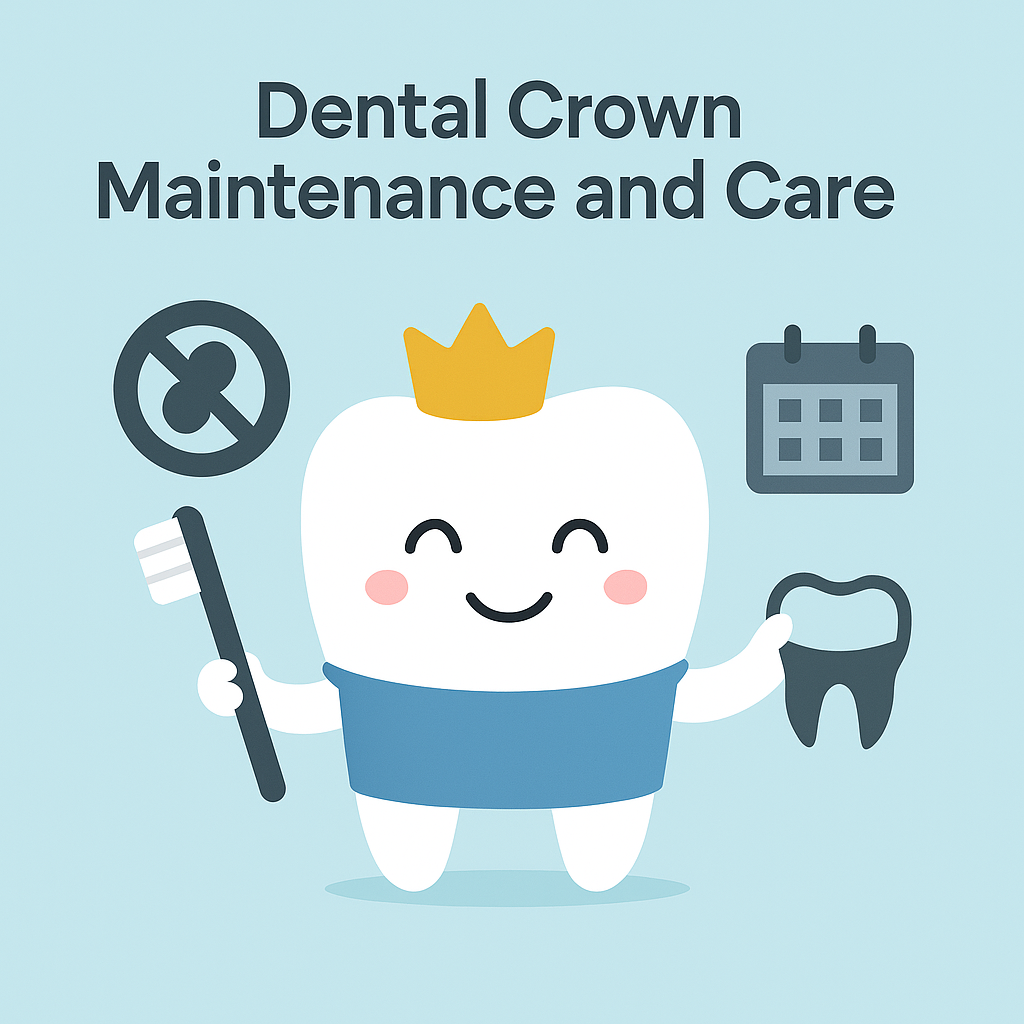
Proper maintenance and care are essential to ensure your dental crown lasts as long as possible.
Just like your natural teeth, crowns require regular brushing and flossing to keep the area around the crown and your gums healthy.
Avoid biting down on hard objects such as ice, nuts, hard candies, or pens, as these can damage the crown.
It’s also important to attend regular check-ups with your dentist.
During these visits, your dentist will examine the crown and the surrounding teeth to make sure everything is in good condition.
If you grind your teeth at night, your dentist may recommend a custom mouthguard to protect the crown from excessive wear.
By following these simple steps and maintaining good oral hygiene, you can help extend the life of your crown and keep your smile healthy.
While dental crowns are designed to be strong and long-lasting, they can sometimes become chipped, cracked, or loose over time.
If you notice any damage to your crown, it’s important to see your dentist as soon as possible.
Prompt repair or replacement can prevent further issues with the underlying tooth and maintain the function and appearance of your smile.
Your dentist will assess the condition of the crown and recommend the best solution. In some cases, a minor repair may be all that’s needed, while in others, a new crown may be required.
Dental crowns are available in a range of materials, including porcelain fused to metal (PFM) and ceramic crowns, so your dentist can help you choose the most suitable option for your needs.
Regular check-ups and good oral hygiene can help catch any problems early and keep your crowns in top condition.
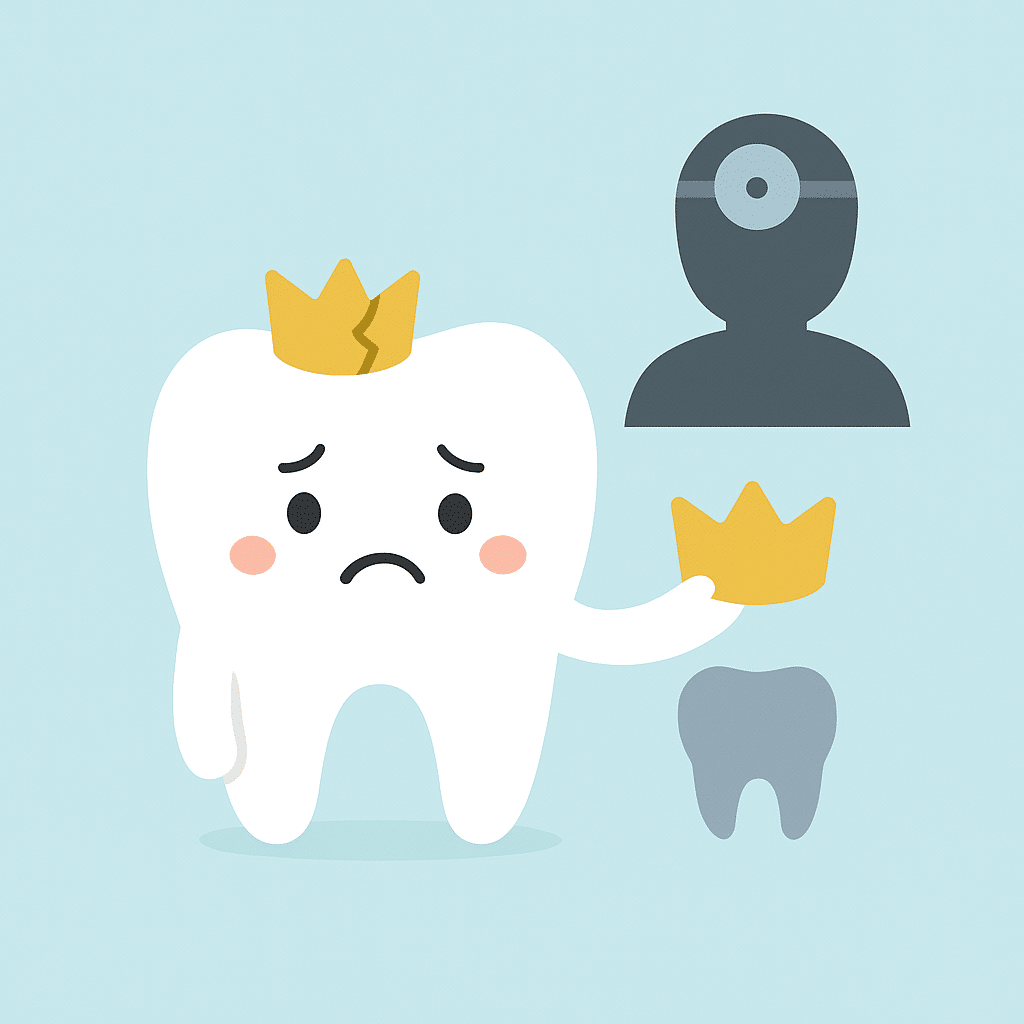
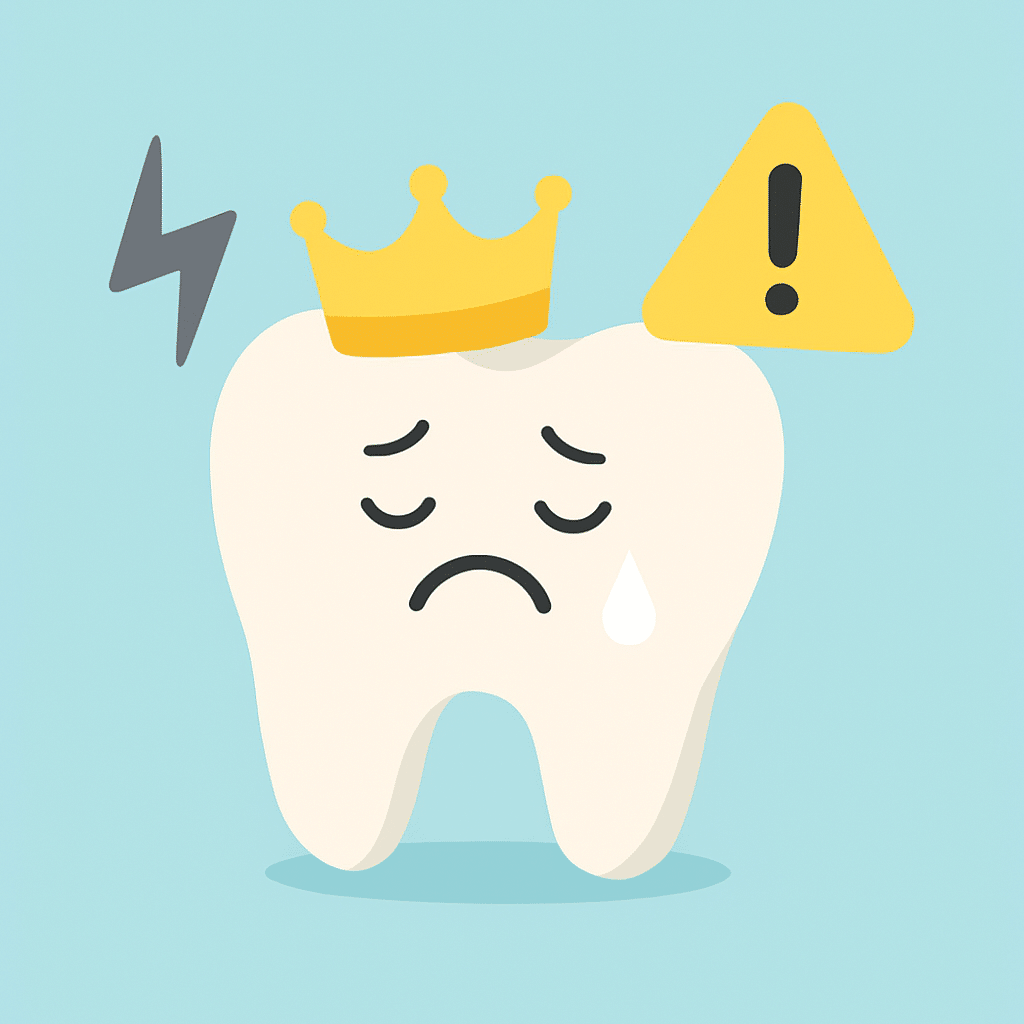
Getting a dental crown is a safe and common procedure, but as with any dental treatment, there are some risks to be aware of.
After the procedure, you may experience some sensitivity or discomfort, especially when eating hot or cold foods.
This usually subsides as your mouth adjusts to the new crown.
There is also a small risk that the crown could become loose or fall out, particularly if you eat very sticky or hard foods.
Attending regular check-ups with your dentist and following their aftercare instructions can help minimize these risks.
In rare cases, some patients may have an allergic reaction to the materials used in the crown, such as certain metals or porcelain.
Your dentist will discuss the materials with you before the procedure and help you choose the best option for your needs.
If you have any concerns after getting a dental crown, your dentist will be able to advise you on the best course of action.
Choosing between a crown and other treatments?
Here’s a quick comparison:
Our team at Ocean Dental will always recommend what’s truly best for your situation — no hard selling, just honest advice.
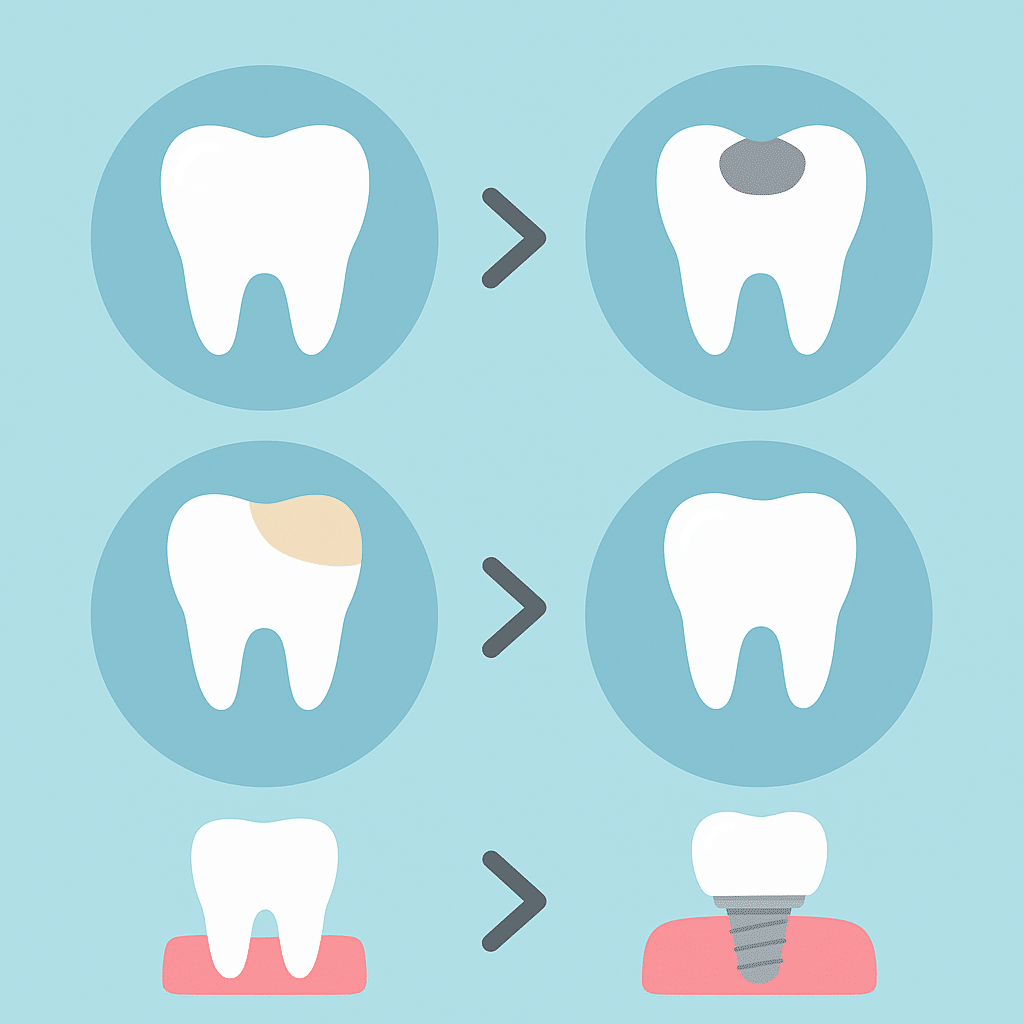
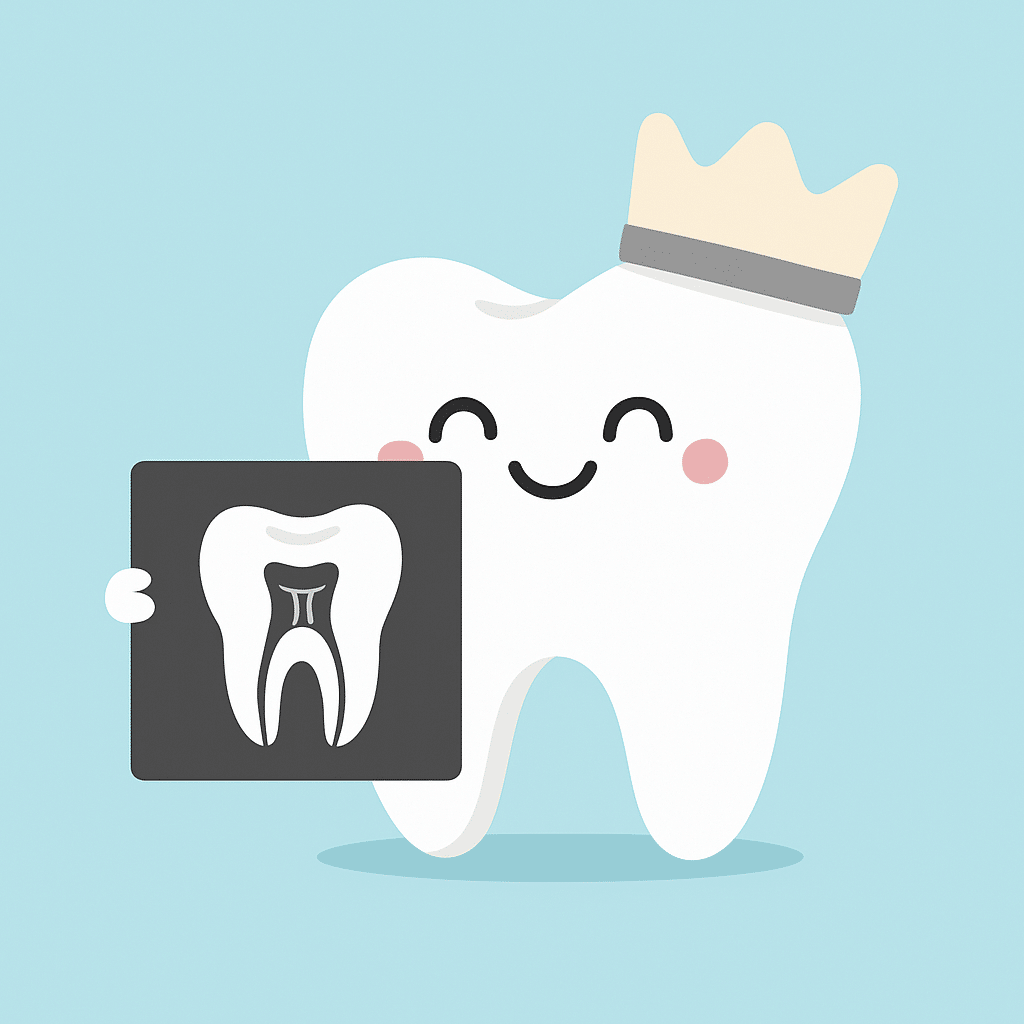
After a root canal treatment, your tooth may become more fragile and prone to damage.
In many cases, your dentist will recommend placing a dental crown over the treated tooth to restore its strength, shape, and function.
A crown acts as a protective cap, helping to prevent further damage and allowing you to use the tooth as normal.
Your dentist will assess the condition of the tooth after the root canal and discuss the best type of crown for your situation.
Options may include ceramic crowns or porcelain fused to metal (PFM) crowns, depending on the location of the tooth and your personal preferences.
With proper care and regular check-ups, a dental crown can last for many years, providing a durable and natural-looking solution for teeth that have undergone root canal treatment.
If you have questions about whether you need a crown after a root canal, your dentist will be happy to guide you through the process and help you make the best decision for your oral health.
Usually 2 visits with 1-2 weeks interval.
The first visit will be the tooth preparation visit, which involves tooth trimming and taking the impression.
The second visit will be after the crown is fabricated from the dental laboratory and the crown is ready to be cemented permanently onto your teeth.
A dental crown is usually required after root canal treatment or for badly broken down or fractured tooth.
In most cases, a regular restoration using filling material is insufficient to protect the tooth from all the forces when chewing; thus, a dental crown is required to restore and protect the tooth from further damages.
Medisave can currently only be used for surgical procedures.
Since dental crown and bridge are not considered surgery, Medisave cannot be used for now.
However, from mid-2026, you may be able to use Flexi-MediSave to pay for
permanent crowns at CHAS dental clinics and public healthcare institutions as the
government extend Medisave usage to root canal treatment and dental crowns.
A dental crown / bridge does not require much special care. However, like all other teeth, you must maintain good oral hygiene habits to prevent decay or gum diseases for long lasting result.
The price for dental crown is from $950, depending on the tooth and material of the crown.
Note: Government Goods and Services Tax (GST) applies.
Different material comes with its pros and cons. The decision on which material to use depends on factors like:
Our dentist at Ocean Dental would be more than happy to share the recommended material for your case.
Yes. We match the shade and shape to blend with your other teeth.
The procedure is done under local anaesthesia and is generally comfortable.
It is important to follow aftercare instructions to ensure a smooth recovery.
Yes, once the final crown is placed.
Avoid hard foods with a dental temporary crown.
With a dental crown, you can eat most foods, but it is best to avoid very sticky or hard items to protect your restoration.
These can include discomfort, sensitivity, or the crown feeling loose.
It is important to contact your dentist if you notice any of these issues.
Don’t hesitate to contact us!
WhatsApp us